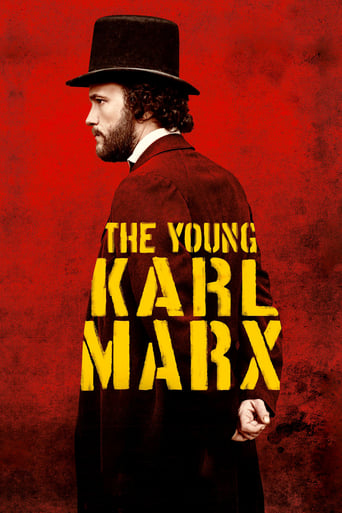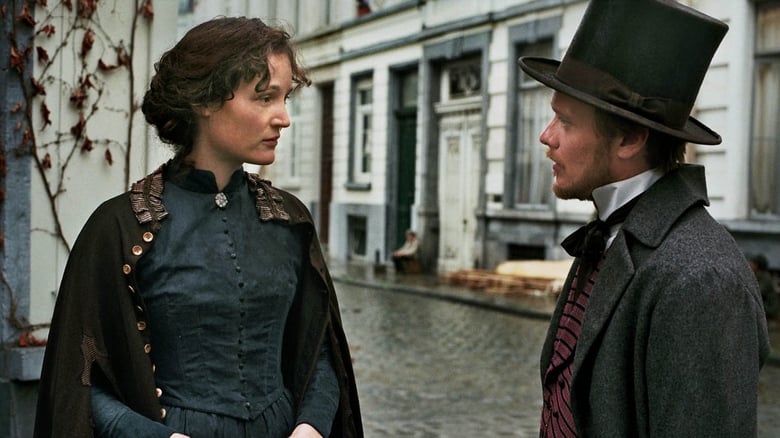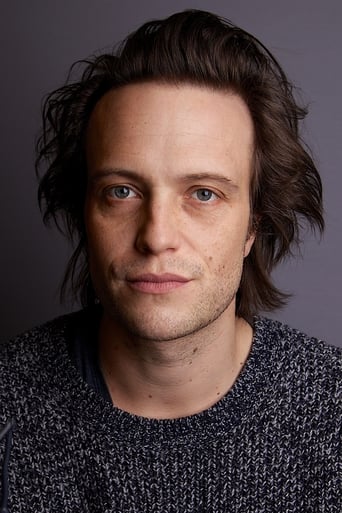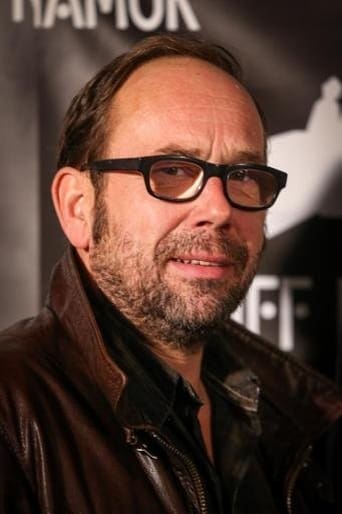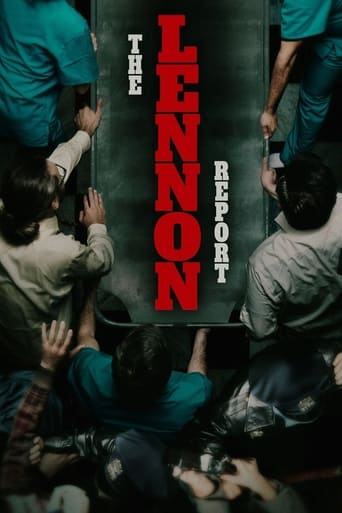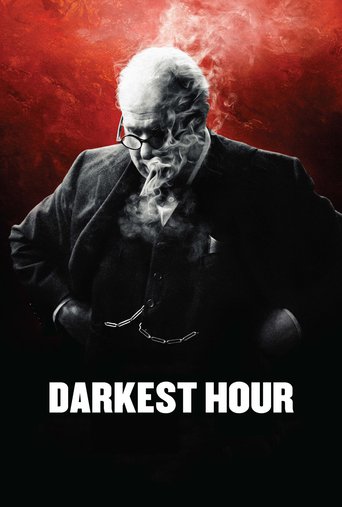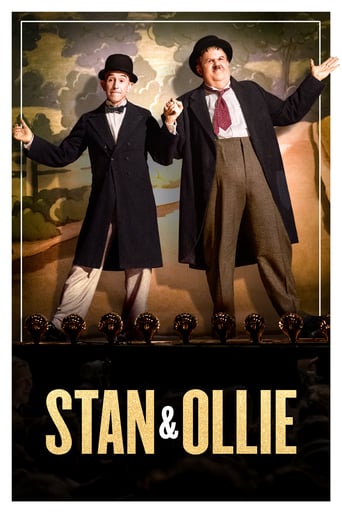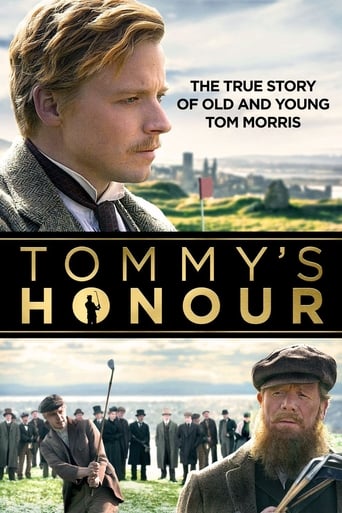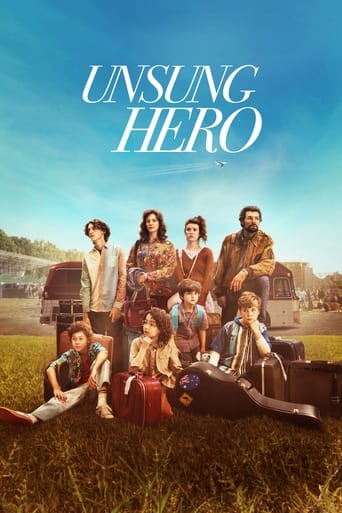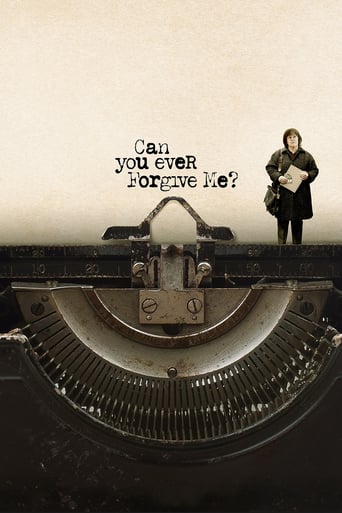The Young Karl Marx (2017)
26 year-old Karl Marx embarks with his wife, Jenny, on the road to exile. In 1844 in Paris, he meets Friedrich Engels, an industrialist’s son, who has been investigating the sordid birth of the British working class. Engels, the dandy, provides the last piece of the puzzle to the young Karl Marx’s new vision of the world. Together, between censorship and the police’s repression, riots and political upheavals, they will lead the labor movement during its development into a modern era.
Watch Trailer
Cast


Similar titles
Reviews
Admirable film.
I cannot think of one single thing that I would change about this film. The acting is incomparable, the directing deft, and the writing poignantly brilliant.
The film's masterful storytelling did its job. The message was clear. No need to overdo.
Very good movie overall, highly recommended. Most of the negative reviews don't have any merit and are all pollitically based. Give this movie a chance at least, and it might give you a different perspective.
If one is looking for a film which touts a boorish freeloader as an intellectual giant, then this might be a way to spend 2 hours of your life... For the remainder of us, we are better off cleaning the hardened gum from the bottom of our waste basket, as a much fancied alternative
Rauol Peck has never shied away from difficult subjects: Lamumba and James Baldwin. Now, he has taken on Karl Marx and Friedrich Engels in 'Young Karl Marx'. This film won't earn him much in the US, a country which has done much to suppress Marx's thoughts and has waged a ferocious campaign to emasculate its own Communist Party and wither on the vine democratic socialism. Marxism is taught drily and negatively on university campuses today, as a failure and a foil to triumphant global capitalism. Peck's film , splendid in the use of the camera, capturing as it does, the ravages of early industrialization in the textile mill the Engels owned in Manchester, the miserable condition of workers, child labor, misery of the cannon fodder that fed what Blake called 'Satanic mills', and the general impoverishment of the laboring class. In Germany, in Prussia, the reign of the feudal king who exercises the rights of a feudal lord with it heavy burden on the peasantry, but in whose university slowly burns revolutionary thought that await the flame to blaze, and in Guizot's France tightly held on a leash any attempt other than fancy theories to arouse the people as they did in 1789. Americans find in general history tiresome, being a society open to the future where the past counts little. They little tolerance for grand theory or discussions, fiery public meetings, respectful exchanges of ideas that command our attention, but mostly in the mouths of demagogues. Like the majority of Americans, they have little tolerance for philosophical discussions, and abstractions bore them no end. The millions that in slavery and wage slavery that built capitalism count for little. So, Peck's 'Young Marx' plunges into the tense, tight theories of Socialist theory of romantics and materialists in the first half of the 19 century, that left its mark even today in the 21 century. Peck's camera and his principal actors August Diehl as the spirited Marx and Stefan Kornaske ass his life long partner and collaborator in struggle as Engels, wage serious battle against Proudhon and Wietling and Bakounin for example, against the Young Hegelians, against Bauer and Feuerbach and Rugge ..names that have some resonance today, and are best read of say in the works of GDH Cole or Wilson's 'To the Finland Station'. Argumentation and debate were fierce, and Marx suffered fools not gladly, nor did Engels who had a smoother manner. Marx and Engels love and turning the other cheek in the fight for the working class whom they saw as the future, and a spearhead of equality that even today's America fear seek through the courts to weaken further so that the the coupon clipeers and the ruling finace capitalists can fully have their way and increase profits and political power and control globally in the full expression of raw exploitation. Marx insisted that 'philosophers have only interpreted the world in various ways, the point is to change it'; they have put theory on its head, but he and Engels turn it around and put it on its feet. And the fruit of their theoretical struggle and intimate knowledge of the material conditions of the working class came to fruition in the writing (jointly) of the 'Communist Manifesto' that signaled the outbreak of revolution. So on top of the moment were this pair that the Revolutions of 1848 broke only weeks later, sweeping away the vestiges of feudalism in the German Holy Roman Empire, and spurred the national struggle throughout an industrializing Europe. The 'Manifesto' is wonderfully written and still hold water today, despite attacks...even in our age of reaction. 'The Young Marx' is in three languages: German, French and English. Peck has assembled a first rate cast and with flair and much artistry conveyed the passions of the young Marx and Engels. Peck's film hasn't a wide distribution, alas. And yet, in the small art house I saw it, the 100 seats were fully occupied, by people of all ages and 'middle class' conditions. The film reviewers on the whole have sort to express impatience in seeing the 'Young Marx",making large yawns and little effort to understand Peck's cinematic vocation in tackling Marx and Engels' thinking and activism. At the end Peck has footage of how wide and vast Marx's influence is: May 1968 in France, Vietnam War protest in the USA, Lumumba, and Mandela, for example. When Marx died Engels tribute sums his life up: Marx didn't die, he ceased to think.
Greetings again from the darkness. When the name Karl Marx comes up, most of us recall that iconic photo of the older gentleman with the large grey beard. As with all older gents, they were once young men, and that's the focus of this film from writer/director Raoul Peck and co-writer Pascal Bonitzer. The story kicks off in 1843 when young Marx was the editor of "Rheinische Zeitung" and carries us through the 1848 publication of "The Communist Manifesto". We progress chronologically through Paris, Brussels and London and witness how Marx's personal life and ideological mission intertwined, leading ultimately to the birth of Communism.August Diehl (INGLOURIOUS BASTERDS) plays Karl Marx and Stefan Konarske plays Friedrich Engels. Their mutual admiration brought them together and their commitment, along with the support of their wives Jenny Marx (Vicky Krieps, PHANTOM THREAD) and Mary Burns (Hannah Steele), carried them through and cemented their legacies.With the endless string of debates and discussion, and the constant struggle with poverty for Marx and his family, the film at times seems repetitive and tedious. It does, however, succeed in making comprehensible the timeline and constant struggle to continue the fight. The process of societal-changing writing is not simple, and we see the different approaches taken by Marx and the upper-crust rebel Engels. The obvious battle between Bourgeoisie and Proletariat remains at the forefront, but we also witness the painstaking networking and research that goes into the work. The two gentlemen share a drink over this toast: "to minds that truly think". Today, many in their 20's, are focused on which direction to swipe, yet at the same age, Marx and Engels were committed to changing the world. The ideals and issues that so dominated their writings (and led to revolution) are every bit as relevant today. We no longer use the terms Bourgeoisie or Proletariat, but class distinction continues to be debated as a source of many global issues - both social and economic. Director Peck (Oscar nominated for last year's I AM NOT YOUR NEGRO) uses Bob Dylan's "Like a Rolling Stone" over the closing credits montage of revolutions and historic turning points to ensure we understand that rebellions and convictions do still exist.
The movie does a good job at a general overview of Marx'process in becoming the person he was, together with his legacy.It shows the reader how the ideas of both Marx and Engels are not some farts in the wind but indeed theoretical and even genius. They were highly educated intellectuals, which is well communicated. Marx as a critic of everything is profoundly integrated. The same goes for the friendship between them, how deep it was and how it developed: well communicated. While Marx was not as poor as the proletariat, he indeed struggled to survive and provide for his family. Something that is also shown properly. His relationship with Jenny, however, is mostly overlooked and only abstract, his kids are nearly completely left out of the picture.The ideas of Engels and Marx that are portrayed are only basic, but formulated on a level not so basic...their intellect is basically communicated too well. This movie has great potential to spread their ideas and to introduce new people to the idea of Communism, it does however take some knowledge to understand the concepts thrown around. As such the movie has failed in the way that it only deals with the top layer of their ideas but fails to clarify them clearly. Therefore it only has potential.Clothing style and the used shots and settings seem very realistic, the atmosphere feels right. The feeling of the Communist specter haunting Europe is kind of missing for the lack of any real footage of revolts/uprisings. The struggle should have been visualized.The movie is about the young Karl Marx (and Engels I would add, he is there for the most part, an intrinsic part of Marx'life), as such it is an introduction into his life. The foundation upon which his book 'Capital' has been build. Following this summary, the movie itself is also an introduction and foundation upon which could be build. With more knowledge of their work, and perhaps a better understanding as to enhance clarification, its potential could be multiplied.

